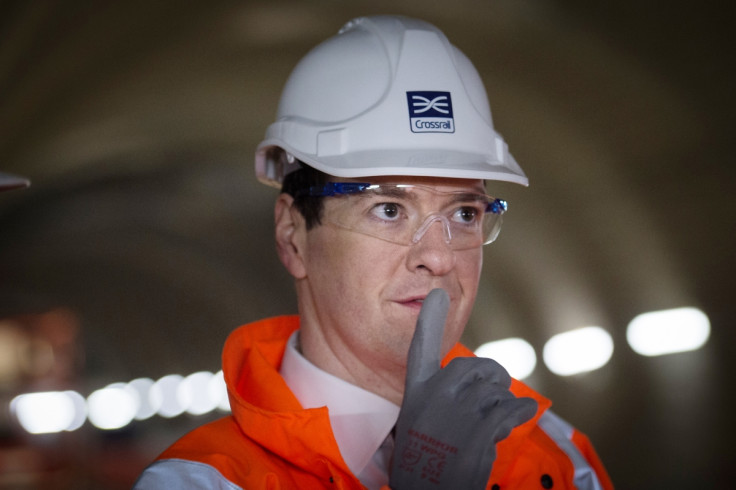National Living Wage: Osborne's risky experiment will affect low-skilled, vulnerable workers

In recent days, government ministers and the opposition have lamented the potential loss of thousands of jobs in the steel industry. The possible closure of the Tata Port Talbot plant has led to a demand for government action. The prospect of having to face families finding themselves workless seems to focus the minds of our elected leaders, often leading them to pursue bad economic policies in the pursuit of 'saving jobs'.
Somewhat ironically, on April Fool's Day, the UK government will also celebrate the introduction of its National Living Wage (NLW) policy. Its own forecasts estimate this will result in 60,000 fewer people being employed by 2020. Yes, that's an estimate, which could be wrong. But it's grounded in economic theory and empirical evidence on the impacts of statutory wage hikes.
Our best guess is that the huge 10.6% year-on-year hike to £7.20 for the minimum wage for over 25s, plus the aim of linking it 60% of median earnings by 2020, will lead to the equivalent of 60,000 fewer people in work. Politicians speaking up for this group of workers are few and far between.
In instituting such huge wage increases, the chancellor is undertaking a risky experiment with people's livelihoods. It is easy for politicians to see these numbers and to think this is a price worth paying to increase the pay of over 2 million workers by 2020. But behind the statistics lie individuals with families to feed and ambitions to get a foot on the jobs ladder.
More troubling still, we know that many of those who will suffer as a result will be low-skilled, vulnerable workers. Research from the Social Market Foundation has shown around half of workers in the workplaces most affected by minimum wage increase are part-time, while 40% of employees affected have qualifications only up to GCSE level.
Many dismiss these concerns by saying that firms can simply adjust in other ways than cutting jobs. They can perhaps increase productivity or eat into profit margins or raise prices. And to a certain extent this is true. Different firms in different sectors will, unsurprisingly, react in different ways. The labour market is also dynamic, meaning that any minimum wage impact is more likely to manifest itself in fewer new jobs created, rather than lay-offs.
But ultimately there will be consequences, and already we are seeing some of the trade-offs companies are making. The most affected industries, such as retail, pubs, farming and social care, are often operating on razor-thin profit margins. So it is not surprising that retailers such B&Q, Tesco and Wilko are already cutting some premium payments or other in-work benefits to compensate, or hotels replacing staff by investing in self check-in kiosks.
Most worrying of all, in trying to ape the Living Wage campaign in branding, the Chancellor has accelerated the bizarre belief that wages should be determined according to workers' rent and fuel bills rather than the supply and demand for labour
Other 'living wage' advocates seek to downplay these impacts by simply claiming that these stories echo predictions made when the minimum wage was introduced and were proved wrong. Let's put aside that this is a logical fallacy (if I throw a small stone at a window and it does not smash, it does not mean it wouldn't with a larger stone). This line of argument ignores that the implementation of the NLW fundamentally overhauls the wage-setting framework of the UK.
The national minimum wage was introduced to combat perceived exploitative pay, and was set by an independent Low Pay Commission who explicitly had to judge the impact of its level on jobs. Yet now the NLW arbitrarily pegs the wage to create a more equal distribution, with the Low Pay Commission reduced to being a body monitoring the effects of wage setting by the chancellor. Importantly, the current chancellor has shown he is willing to tolerate fewer jobs for higher pay for others.
It is far easier for politicians to declare that firms are 'not paying enough' and to compel them to pay more than to undo damaging government policies on housing, energy and childcare, which raise the cost of living
This politicisation is extraordinarily troubling. The new framework means close to 20% of the private sector workforce will have their wage determined by government. This dynamic makes it extremely unlikely future chancellors would oversee the slashing of the NLW in a recession, despite the supposed long-term link to median earnings. The impact of this policy on employment in tough times could therefore be particularly pernicious.
Perhaps most worrying of all, in trying to ape the Living Wage campaign in branding, the chancellor has accelerated the bizarre belief that wages should be determined according to workers' rent and fuel bills rather than the supply and demand for labour. Of course, it is far easier for politicians to declare that firms are 'not paying enough' and to compel them to pay more than to undo damaging government policies on housing, energy and childcare, which raise the cost of living. But it's not good economics.
With such large increases in the minimum wage and its politicisation, George Osborne is pursuing a radical and dangerous trial on the UK labour market. Low-skilled workers are the guinea pigs.
Ryan Bourne is Head of Public Policy at the Institute of Economic Affairs
© Copyright IBTimes 2025. All rights reserved.





















